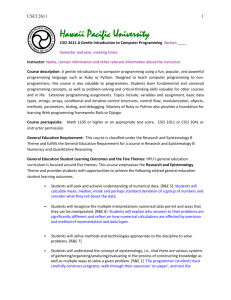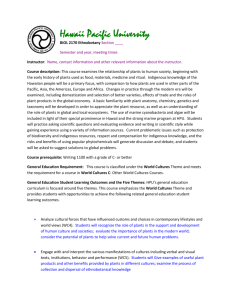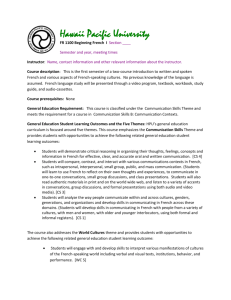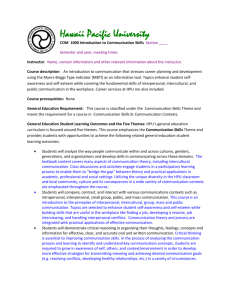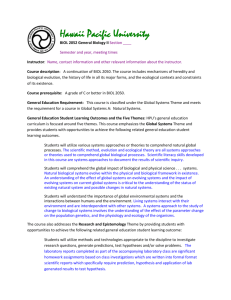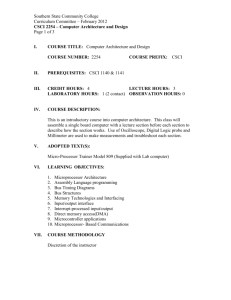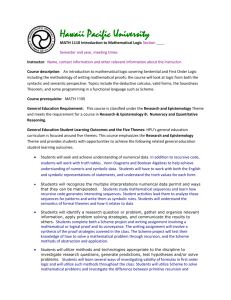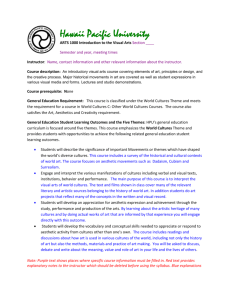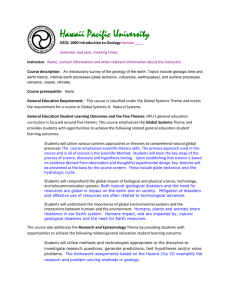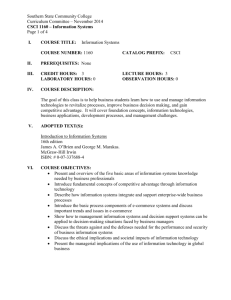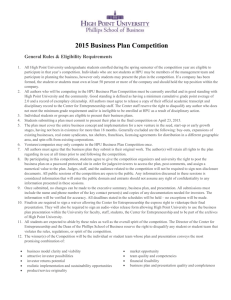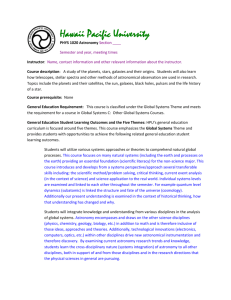Hawaii Pacific University
advertisement
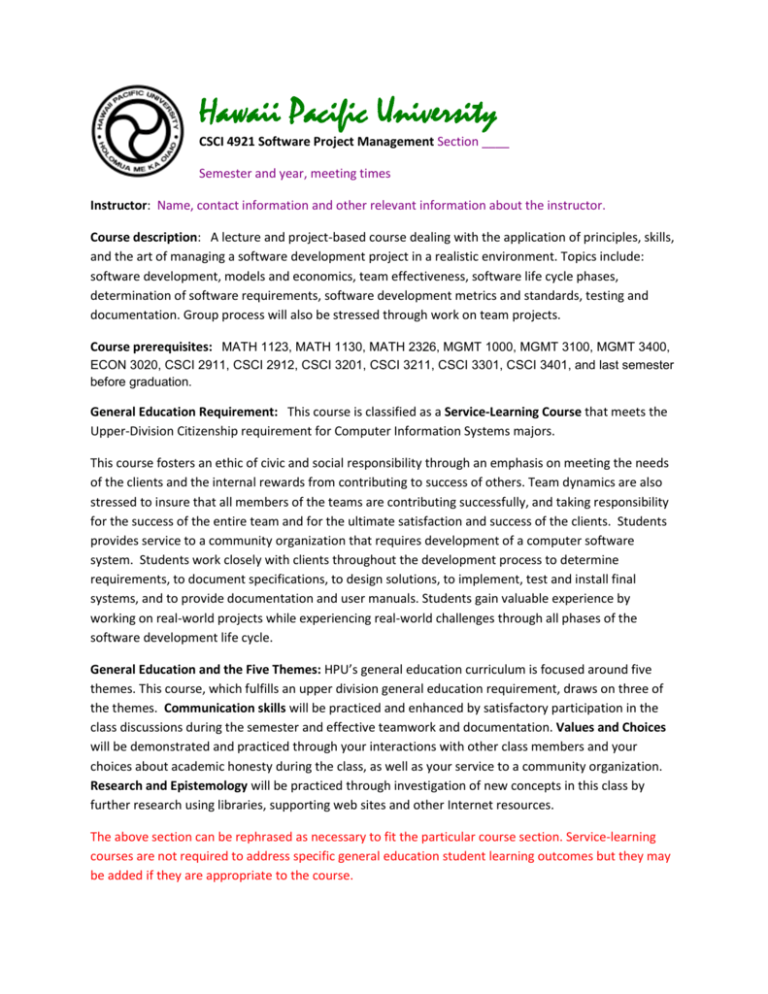
Hawaii Pacific University CSCI 4921 Software Project Management Section ____ Semester and year, meeting times Instructor: Name, contact information and other relevant information about the instructor. Course description: A lecture and project-based course dealing with the application of principles, skills, and the art of managing a software development project in a realistic environment. Topics include: software development, models and economics, team effectiveness, software life cycle phases, determination of software requirements, software development metrics and standards, testing and documentation. Group process will also be stressed through work on team projects. Course prerequisites: MATH 1123, MATH 1130, MATH 2326, MGMT 1000, MGMT 3100, MGMT 3400, ECON 3020, CSCI 2911, CSCI 2912, CSCI 3201, CSCI 3211, CSCI 3301, CSCI 3401, and last semester before graduation. General Education Requirement: This course is classified as a Service-Learning Course that meets the Upper-Division Citizenship requirement for Computer Information Systems majors. This course fosters an ethic of civic and social responsibility through an emphasis on meeting the needs of the clients and the internal rewards from contributing to success of others. Team dynamics are also stressed to insure that all members of the teams are contributing successfully, and taking responsibility for the success of the entire team and for the ultimate satisfaction and success of the clients. Students provides service to a community organization that requires development of a computer software system. Students work closely with clients throughout the development process to determine requirements, to document specifications, to design solutions, to implement, test and install final systems, and to provide documentation and user manuals. Students gain valuable experience by working on real-world projects while experiencing real-world challenges through all phases of the software development life cycle. General Education and the Five Themes: HPU’s general education curriculum is focused around five themes. This course, which fulfills an upper division general education requirement, draws on three of the themes. Communication skills will be practiced and enhanced by satisfactory participation in the class discussions during the semester and effective teamwork and documentation. Values and Choices will be demonstrated and practiced through your interactions with other class members and your choices about academic honesty during the class, as well as your service to a community organization. Research and Epistemology will be practiced through investigation of new concepts in this class by further research using libraries, supporting web sites and other Internet resources. The above section can be rephrased as necessary to fit the particular course section. Service-learning courses are not required to address specific general education student learning outcomes but they may be added if they are appropriate to the course. Note: Purple text shows places where specific course information must be filled in. Red text provides explanatory notes to the instructor which should be deleted before using the syllabus. Outcomes below are an example and may be rephrased or modified by the instructor to fit the particular emphasis of his or her course. Student Learning Outcomes for CSCI 4921 Software Project Management Upon successful completion of this course, students will be able to: 1. Understand and describe concepts of IT planning and implementation; 2. Recognize and analyze organizational systems and decision-making processes; 3. Determine and specify strategies for employing IT to achieve competitive advantage; 4. Elicit design requirements from clients, using a variety of techniques; 5. Effectively estimate costs for development and evolution of a system using several different techniques; 6. Measure project progress, productivity and other aspects of the software creation process; 7. Assess a software process, to evaluate how effective it is at promoting quality; 8. Use standards for quality, process and project management; 9. Perform risk management, dynamically adjusting project plans; 10. Identify ways to manage and utilize information for corporate decision-making; 11. Apply project management standards and prepare professional planning documents; 12. Contribute effectively to a team in developing a significant information system. For the rest of these required syllabus items see the details in the faculty handbook. Delete this note once the syllabus is complete. For online courses there are some additional requirements given at this link. Texts List textbooks with ISBN’s and include this language as well All textbook information (pricing, ISBN #, and e-books) for this course can be found on the HPU Bookstore website: hpu.edu/bookstore. If you have any questions regarding textbooks, please contact the HPU Bookstore at: Phone: 808-544-9347 Or e-mail: jyokota@hpu.edu mmiyahira@hpu.edu Assignments and mode of evaluation Summary of important dates and deadlines (if the schedule is a separate document and due dates are not given with the description of the assignments). Class rules and policies (including regarding attendance, late work and academic dishonesty) Schedule of events (may be attached separately)
